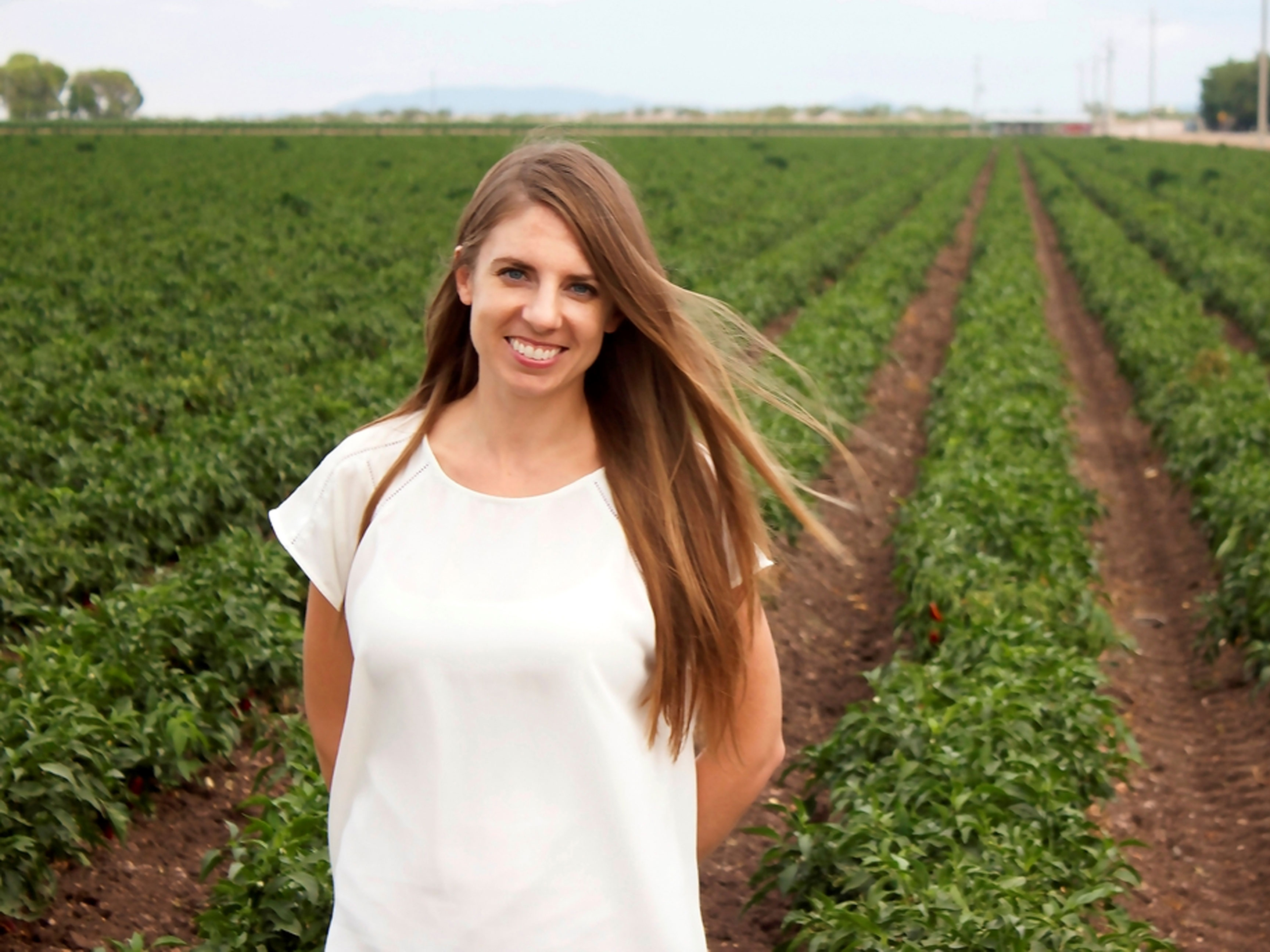UNM Researcher Delves Into Water Politics Affecting Our State's Most Beloved Crop
November 27, 2018 - UNM Newsroom / Katie Williams

The following UNM Newsroom article highlights the recent work of doctoral anthropology student Holly Brause, whose research was partially supported by a Field Research Grant from the Latin American and Iberian Institute in 2016, during which time she traveled to Chihuahua, Mexico, in order to examine chile production. The article was originally published on September 27, 2018, as "UNM researcher delves into water politics affecting our state’s most beloved crop," by Katie Williams. We are pleased to reprint it here to highlight her accomplishments.
===
Doctoral student Holly Brause packed her trunk this summer and hit the road for a lengthy drive down south. While most students travel for fun and to relax, Brause made the trip to roll up her sleeves and get to work on understanding how water issues are affecting New Mexico’s most treasured, above ground, resource.
“New Mexican agriculture depends on irrigation. Irrigation is a political process, and, like all political processes, is contested by different stakeholders,” said Brause. “This project examines the everyday politics of agricultural water use in the context of an uncertain future.”
The uncertain future Brause is focusing on is that of agricultural production here in the state, with a special emphasis on the chile industry. With agriculture being the single biggest water user in the U.S. and here in New Mexico, she hopes to understand how water is used to grow crops in southern New Mexico, but most importantly for a cultural anthropologist, how the precious resource is administered.
“I’m focusing on the social side of water use,” said Brause. “Something unique that an anthropologist can offer is a different perspective on water issues—the issues related to people, their stories, how they make decisions about water use and how they govern it.”
Brause is based out of Las Cruces for the next 10 months, completing her ethnographic research. As part of her research, she travels the southern part of our state picking the brains of growers, industry leaders, scientists, field laborers, and agricultural lenders on the chile business and how water is of the utmost concern.
“I learn about water issues affecting these farmers by interacting with them, learning about their daily water interactions,” said Brause. “I hear what their daily water issues are like and I combine that with interviews on what they think the future holds for them when it comes to resources.”
One notable finding from her interviews is the focus on the future.
“I think agriculturalists don’t get credit for really thinking a lot about water conservation,” says Brause. “Being that they are the largest users of water in the state, they don’t get much credit for seeking out ways to conserve it.”
Brause is able to work on her project entitled, The Everyday Politics of Irrigated Agriculture and an Uncertain Future, with her advisor, UNM Professor David Dinwoodie, thanks to a $6,000 grant from the New Mexico Water Resources Research Institute (WRRI).
The WRRI provides support for water-related research through its Faculty and Student Water Research Grant Programs. Funds are made available through the institute’s federal base grant and through state appropriations. The funded projects allow New Mexico university faculty and students to pursue critical areas of water resources research while providing training opportunities for their students.
The institute also participates in joint efforts to solve water-related problems along the U.S./Mexico border. Through its support of research and its interaction and cooperation with other water resources entities, the institute — located in Las Cruces at New Mexico State University — continuously strives to alleviate water problems, working toward ensuring an ample supply of high-quality water for future generations.
Ultimately, Brause hopes this research sheds light on how farmers can best be supported in their efforts to adopt water saving techniques and technology and participate in water conservation efforts.
“This project has the potential to facilitate an exchange of knowledge between farmers, support institutions, and policymakers in regards to planning for the future that may be dramatically affected by the New Mexico/Texas water litigation, increasing water scarcity, and drought conditions,” she says. “Such communication could produce increased resilience for the agriculture industry that is so important to the state of New Mexico, and result in more effective water conservation collaborations between water management organizations and agriculturalists.”
